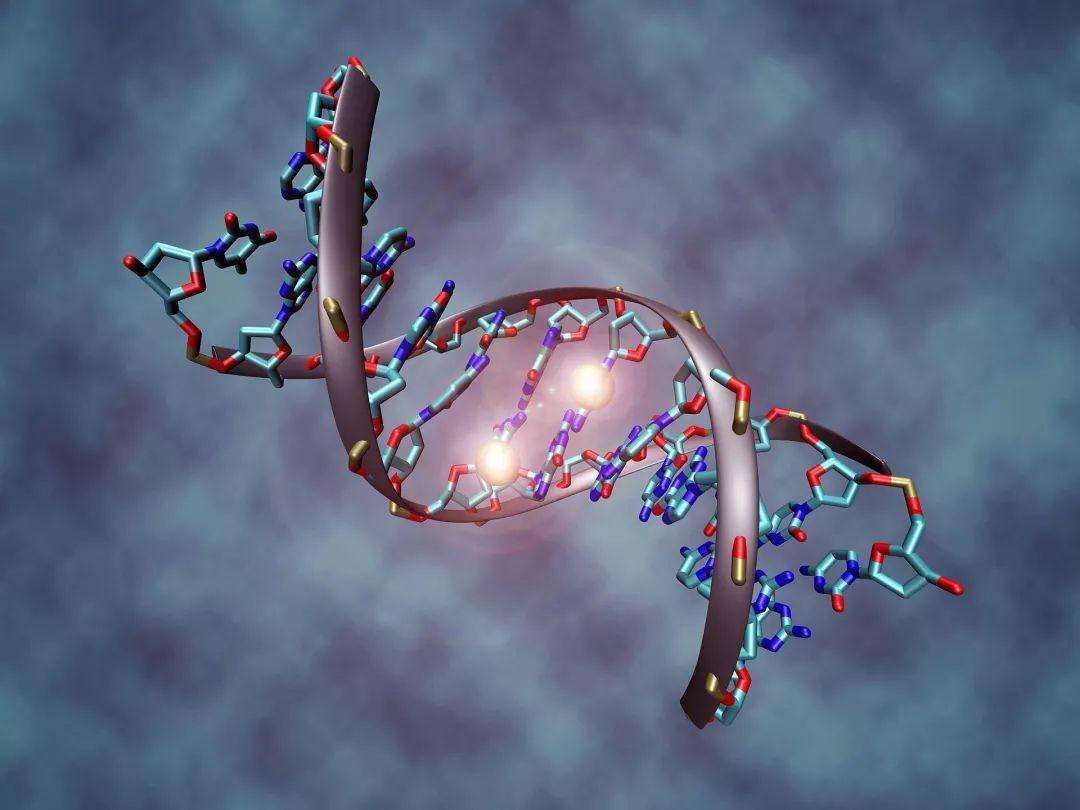(单词翻译:单击)
Most of the time our DNA replicates with dutiful accuracy, but just occasionally — about one time in a million — a letter gets into the wrong place. This is known as a single nucleotide polymorphism, or SNP, familiarly known to biochemists as a "Snip." Generally these Snips are buried in stretches of noncoding DNA and have no detectable consequence for the body. But occasionally they make a difference. They might leave you predisposed to some disease, but equally they might confer some slight advantage — more protective pigmentation, for instance, or increased production of red blood cells for someone living at altitude. Over time, these slight modifications accumulate in both individuals and in populations, contributing to the distinctiveness of both.
在大多数情况下,我们的DNA都以极其精确的方式进行复制,但是,在非常偶然的情况下——每100万次大约出现1次,某个字母(碱基)进入了错误的位置。这种情况被称为单一核苷酸多样型(SNP),也就是生化学家所说的Snip。通常情况下,这些Snips被埋没在非编码DNA链中,并不会对身体产生显著的影响。但是偶尔它们也会发生作用,有可能使你容易感染某种疾病,但也同样可能产生某种小小的有利作用——比如更具保护性的肤色,或是增加生活在海拔较高的地区的人的红细胞。这种不太显著的变化不断累积,届时对人与人和人种与人种之间的差异产生了影响。
The balance between accuracy and errors in replication is a fine one. Too many errors and the organism can't function, but too few and it sacrifices adaptability. A similar balance must exist between stability in an organism and innovation. An increase in red blood cells can help a person or group living at high elevations to move and breathe more easily because more red cells can carry more oxygen. But additional red cells also thicken the blood. Add too many, and "it's like pumping oil," in the words of Temple University anthropologist Charles Weitz. That's hard on the heart. Thus those designed to live at high altitude get increased breathing efficiency, but pay for it with higher-risk hearts.
在DNA的复制过程中,精确性与差异性必须保持平衡。差异性太多,生物将丧失功能,但差异性太少又会降低其适应性。类似的平衡也必须存在于一种生物的稳定性和创新性之中。对于生活在海拔较高的地方的某个人或某群人,增加红细胞可以使他们活动和呼吸顺畅,因为更多的红细胞能够携带更多的氧气。但是增加的红细胞也会增加血液的浓度。用坦普尔大学人类学家查尔斯·威茨的话来说,太多的红细胞使得血液“像石油”。这对心脏来说是一个沉重的负担。因此那些生活在高海拔地区的人在肺活量增加的同时,也增加了心脏患病的可能性。


